# The jorney of hajj : islam's pilgrimage
Assalamu’alaikum warahmatullahi wabarakatuh. May the peace, mercy, and blessings of Allah be with you.
This was one of the most requested post I got asked to write. So I thought why not, share my experience with you all.
Lets me cover the basics first, then I’ll retell my story. I completed my hajj(pilgrimage) last year in september 1st 2017. For those who do not have that much understanding of Islam, and why as muslims we perform pilgrimages. I hope you all learn something new and benefit from this post.
For muslim; hajj is the fifth and final piller of the islam.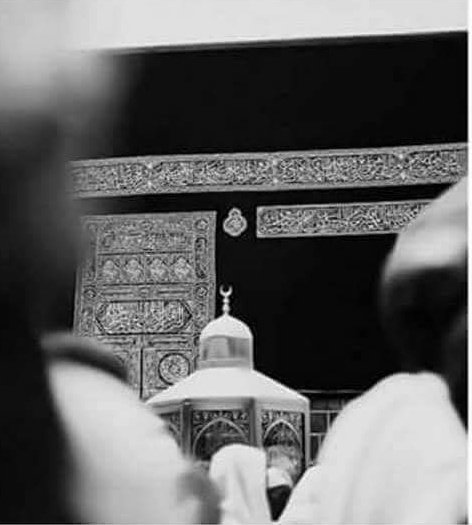

Hajj literally means “to set out for a place” and for the millions of Muslims who will travel to Makkah in modern day Saudi Arabia this year, it is the ultimate pilgrimage.
For Muslims, hajj is the fifth and final pillar of Islam. It takes place in the month of Dhul Hijjah which is the 12th month of the Islamic lunar calendar.
Infographic: The hajj guide
Hajj officially begins on the 8th of Dhul Hijj and lasts for five days.
The pilgrimage is obligatory for all Muslims once in their lifetime.
It is an “obligation only upon a Muslim who is able to perform it and has the physical and financial means to do so.”
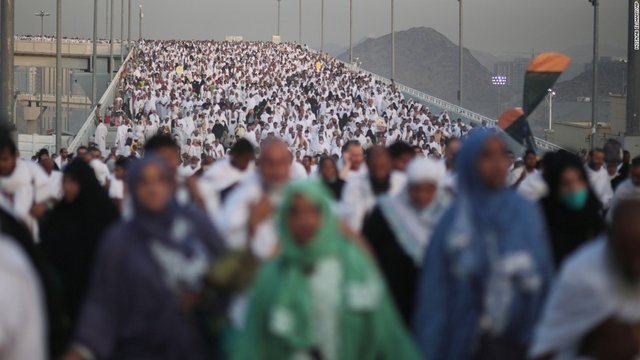
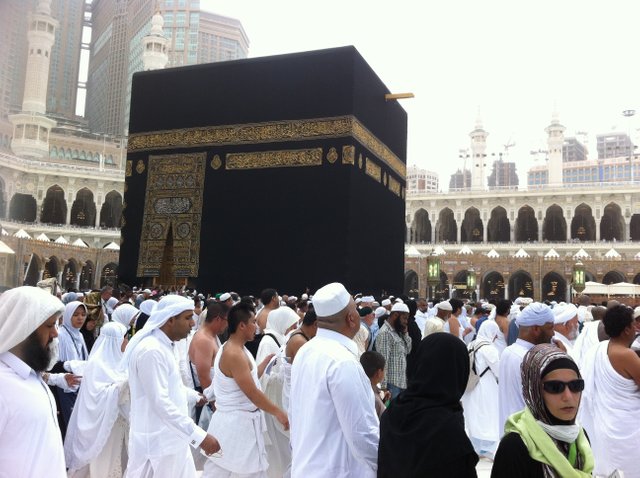
State of Ihram
The first step for any pilgrim wishing to perform hajj is to enter a state of Ihram, which is a special state of purity.
Men must don a distinctive outfit consisting of two pieces of white, unsown, cloth. One of the pieces is wrapped around his midriff to cover his lower body, while the other is draped around his shoulders to cover his upper body. Women must cover their bodies in a loose fitting outfit and cover their hair. However, they are not permitted to cover their faces.

It is not just about being physically prepared; pilgrims must complete their Ihram by reciting an intention to perform hajj.
In this state, pilgrims cannot cut their hair, clip their nails, wear perfume or engage in sexual relations.
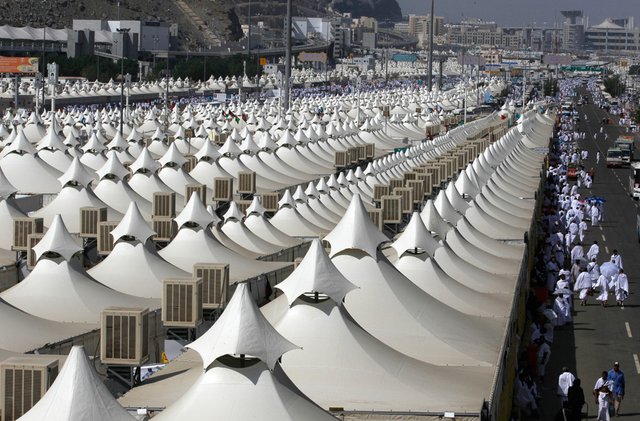
Staying mina
Mina, which is roughly eight kilometers away.
Pilgrims spend the day and night in Mina praying and reciting praise of their Lord.
On the 9th of Dhul Hijjah, the dawn prayer is performed in Mina. After this, pilgrims make their way to Arafat, which is roughly 14 kilometers away.
Day of Arafat
Pilgrims stay in the desert planes of Arafat, praying and repenting, until after sunset on the same day.
“The 9th of Dhul-Hijjah is the Day of Arafat, which is the single most important day of performing the hajj. Hajj is not valid without the day of Arafat, any pilgrim who misses this day, misses the whole hajj,” Alkobaisi stated, expanding on the importance of this section of the pilgrimage.


At this point, pilgrims are required to make their way to Muzdalifah, a valley between Mina and Mount Arafat.
Here, pilgrims spend the night out in the open. They also gather small pebbles, to be used in a special ritual the next day.

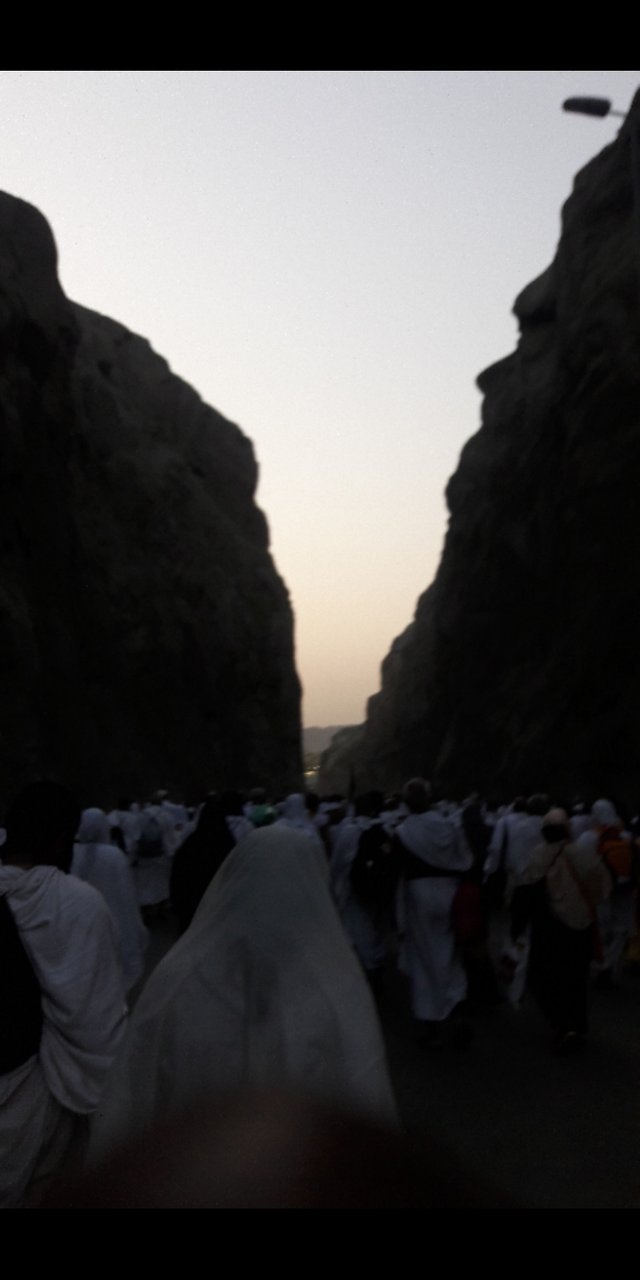
At this point, pilgrims are required to make their way to Muzdalifah, a valley between Mina and Mount Arafat.
Here, pilgrims spend the night out in the open. They also gather small pebbles, to be used in a special ritual the next day.
After the dawn prayers on the 10th of Dhul Hijjah, pilgrims leave Muzdalifah and proceed to Mina.
In Mina, men use the previously collected pebbles to stone a series of three pillars representing the devil. Women and older people can delegate this responsibility to a male in their party.
“This partly signifies stoning away the enemy is sometimes inherent in all of us, the enemy that is taking us away from the path of Islam,”
.jpg)
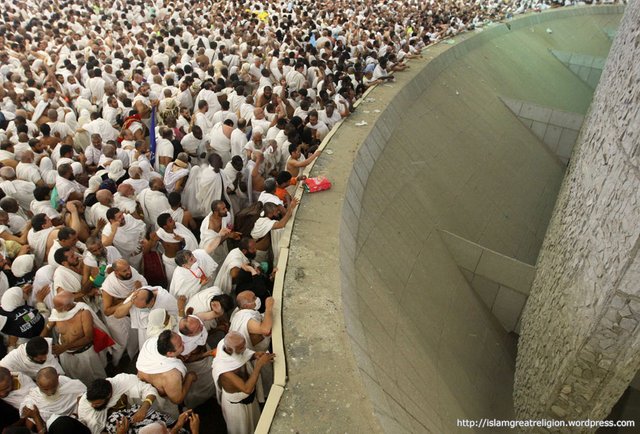
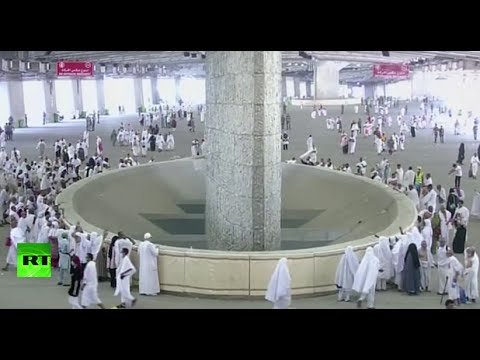
Now, men are required to shave their head; a common way in which a male who has performed the pilgrimage can be identified on his return home. Women cut a lock of their hair.
Muslims are also required to sacrifice an animal and hand out the meat to needy people. Those who are unable to perform the sacrifice themselves can delegate the task.
safa and marwa
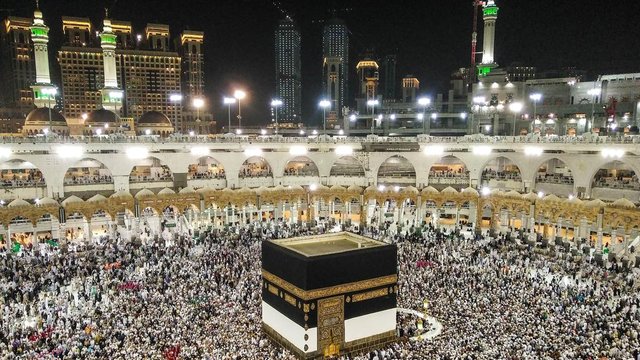
Pilgrims then travel back to the holy city of Makkah and the Masjid al-Haram, or the Great Mosque.
Here, they perform the Tawaf; the circling of the Ka’aba seven times and then walk seven times between the hills of Safa and Marwa in an act called the Sa’y.
This act of walking between the two hills located in the mosque complex, commemorates the story of Prophet Abraham’s wife Hajjar, and her son Ismail.
According to Islamic tradition, Hajjar ran between the hills seven times in a bid to find water for her baby Ismail. After a frantic search, a spring of water gushed forth, known as Zamzam.


Interestingly, the sacrifice and sincerity of this great woman is immortalize by a pillar in hajj,
“Anyone who is going for hajj should remember Hajjar and her sacrifice, sincere faith and great hope for the best from [God].”
After the Sa’y, pilgrims return to Mina to pray, reflect and to stone the pillars representing the devil until the 12th of Dhul Hijja.
On the 12th, pilgrims make the final leg of their journey back to the Masjid al-Haram in Makkah to perform a farewell Tawaf, or circling of the Ka’aba.
The hajj is complete and those who have taken part have performed the single most important pilgrimage prescribed by Islam.
Millions of pilgrims hope that the thousands of steps they took, in the heat and across the desert, will bring them that one important leap closer to their religion and to their God.
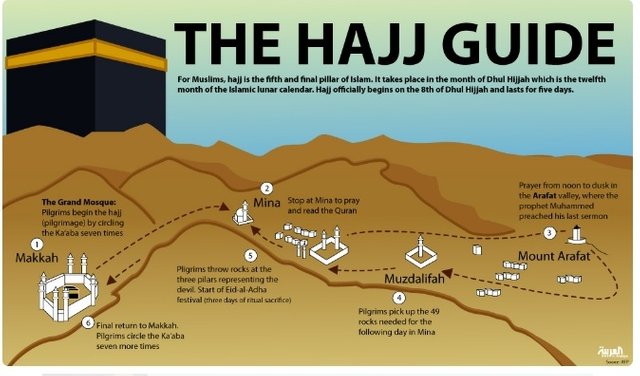
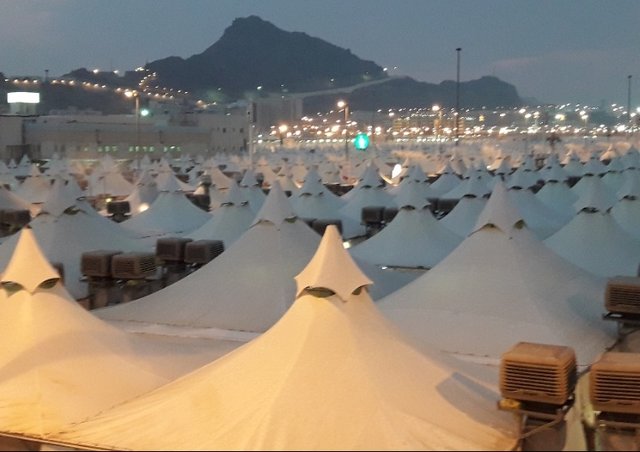
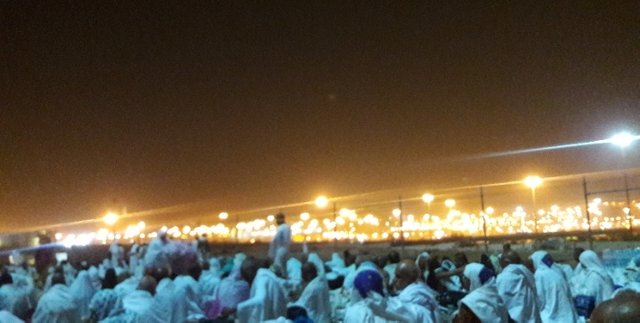
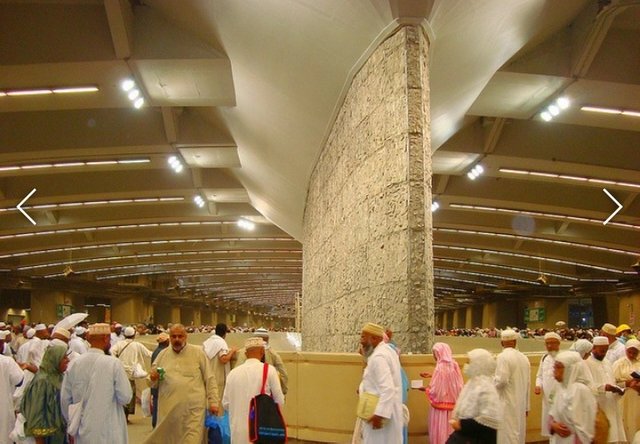


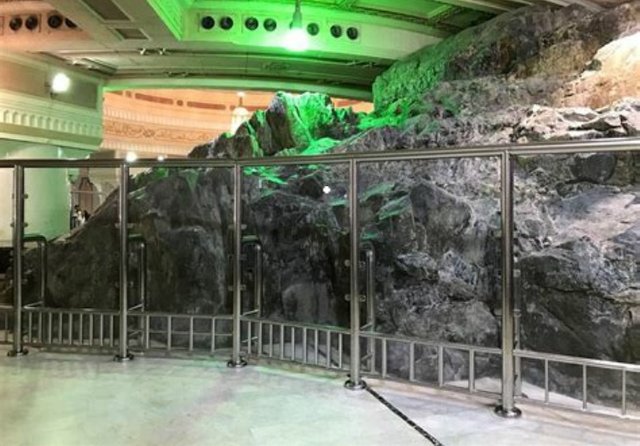
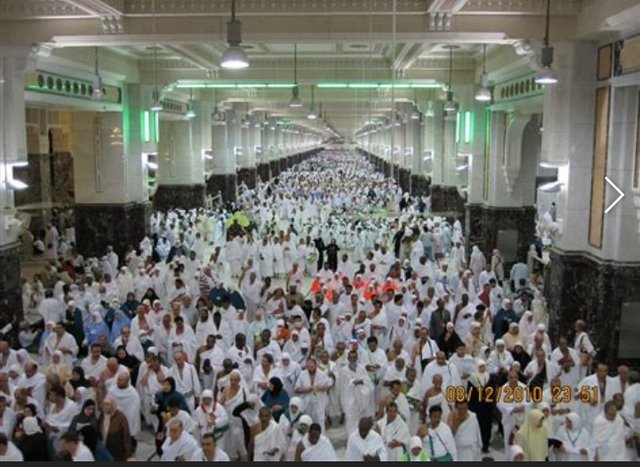
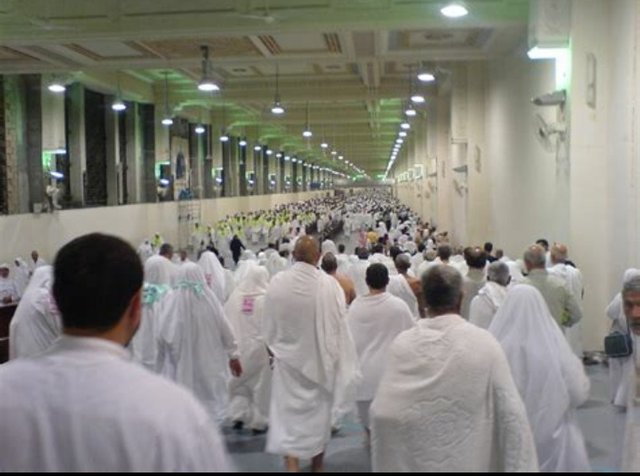
interesting and sprictual blog so keep posting :)
Thank u so much for appriciate me @sanjugangber
Very informative article with very rare pics
Thank u
Nice information!
Thank u
Assalam O Alaikum. Very wonderful article. Very well written and well versed article, indeed. Gained a lot of knowledge from it. You really are talented in writing blogs. Keep up the good work.
I have followed you and commented, upvoted your blog. Please return the favor and do the same.
Walekumasslam sir ... And Thank u so much for appriciating me and supporting me... 😊😊
Today I came to know someone interesting facts. Every religion are good . Teaches us to be humble, polite loving and brotherhood.
Thank u so much ..for appriciation 😊
How in the world does Saudi Arabia handle such a massive number of people each year? @rubi0102
@manishseo ...mercy of allah all thing going good during hajj and the Saudi government does a pretty good job at managing things, all things considered. But not always: Over the years, there have been many horrific examples of large numbers of people dying....😊
Walykum assalam, nice informative post, you explain very well, Do you really completed Hujj last year 2017? My uncle and grandmother is going for Hajj in 16 july
Thank u so much.. For appriciating me .😊
Yes i completed my hajj last year 2017.